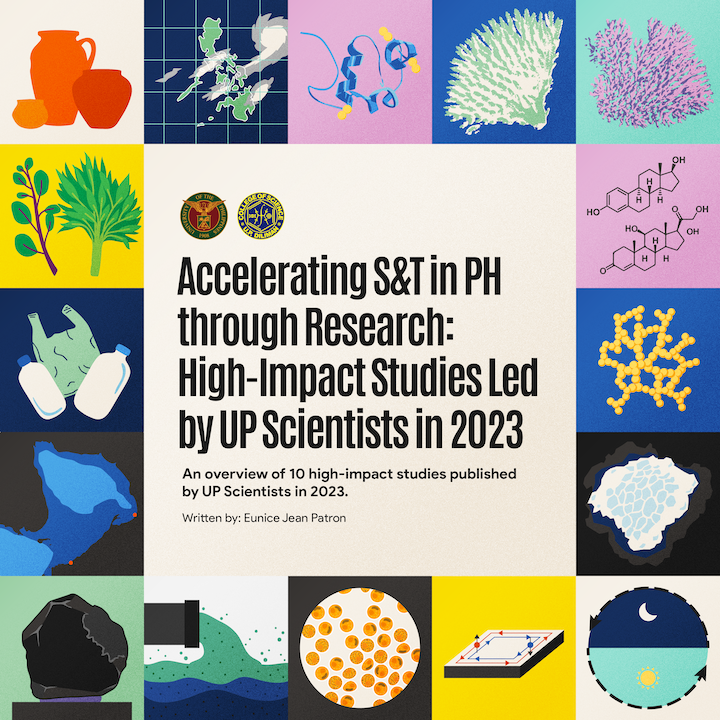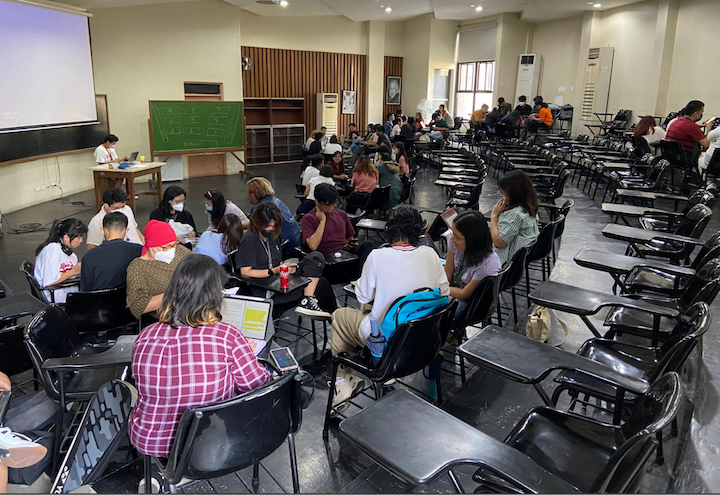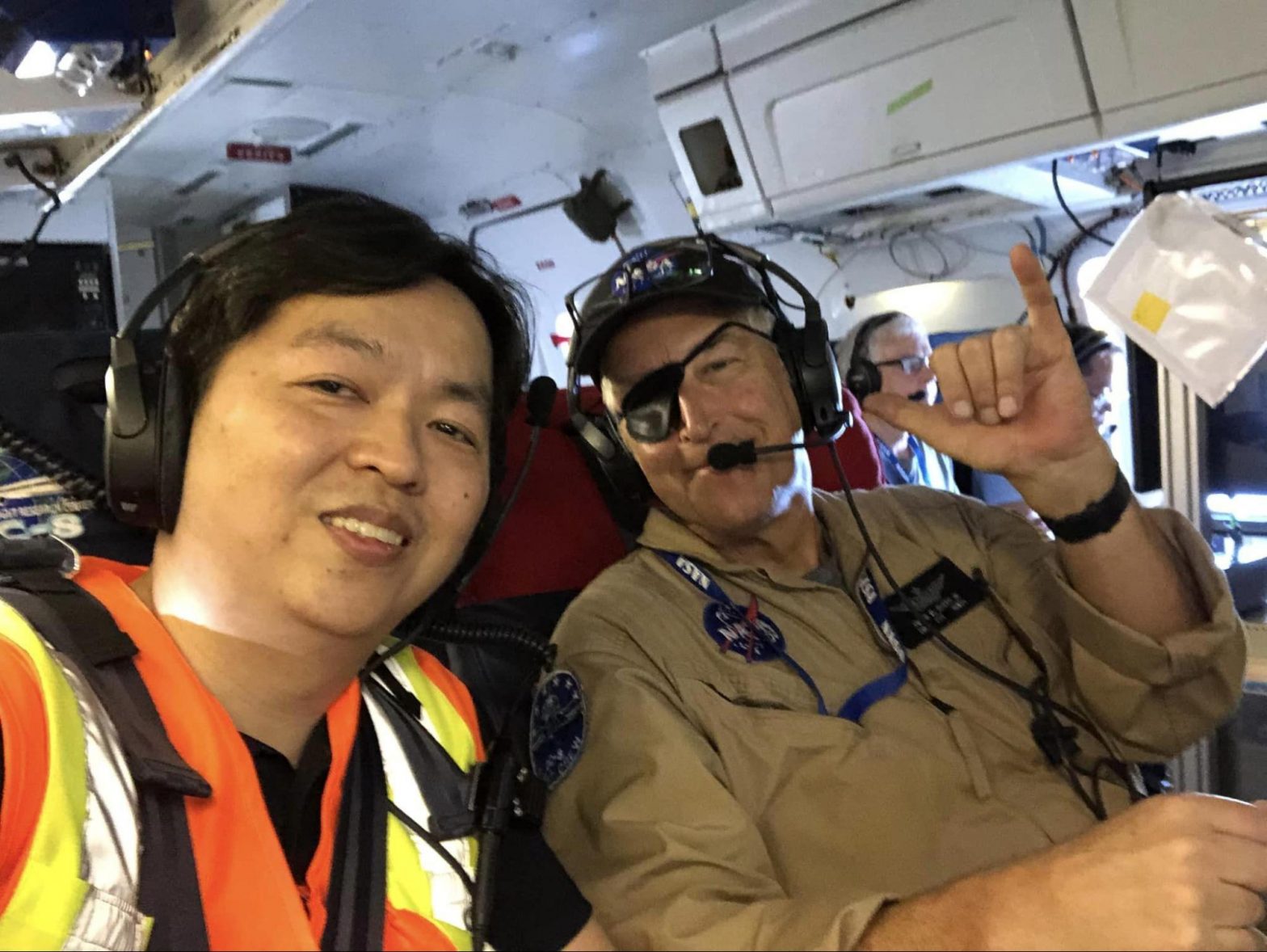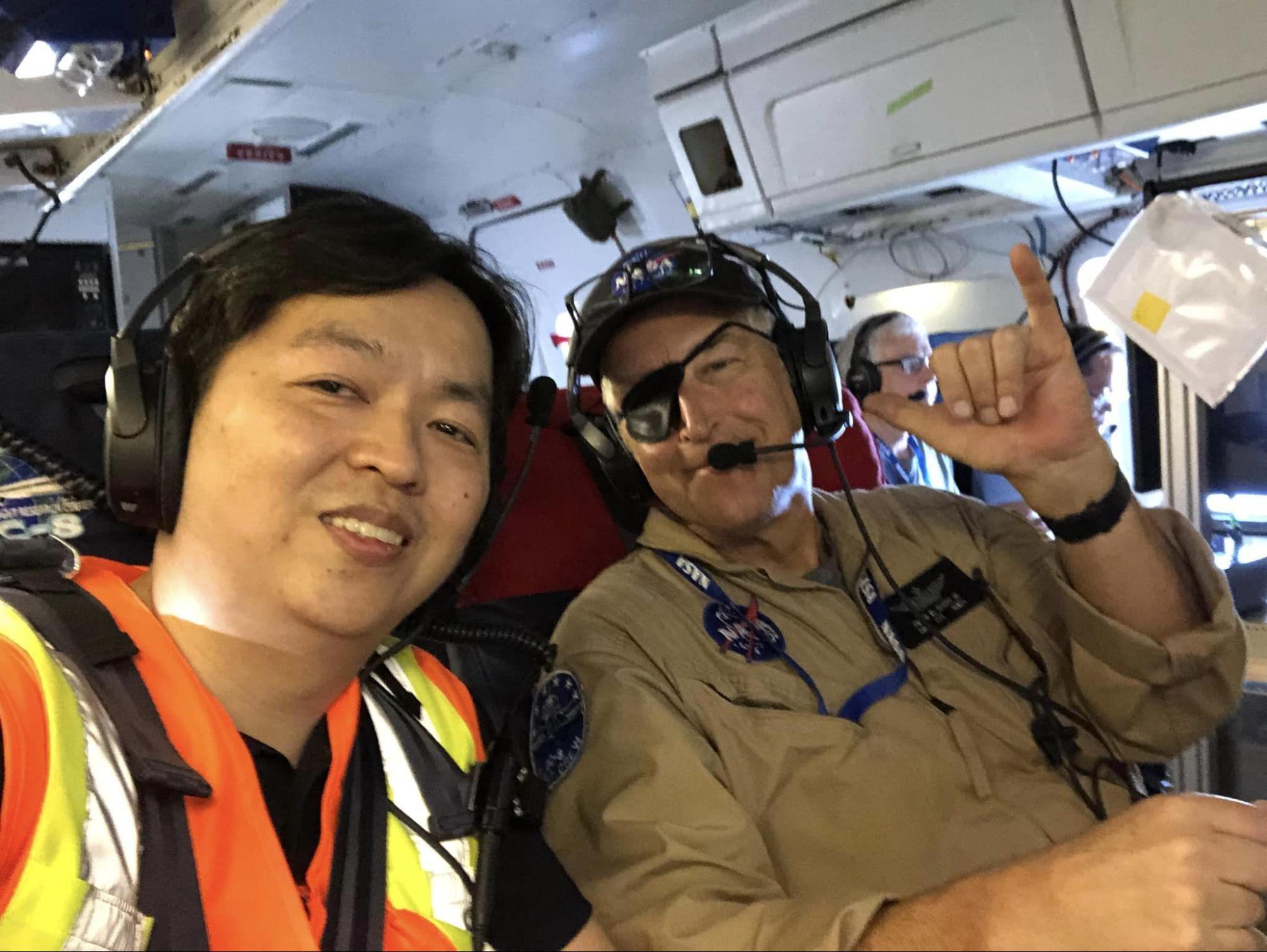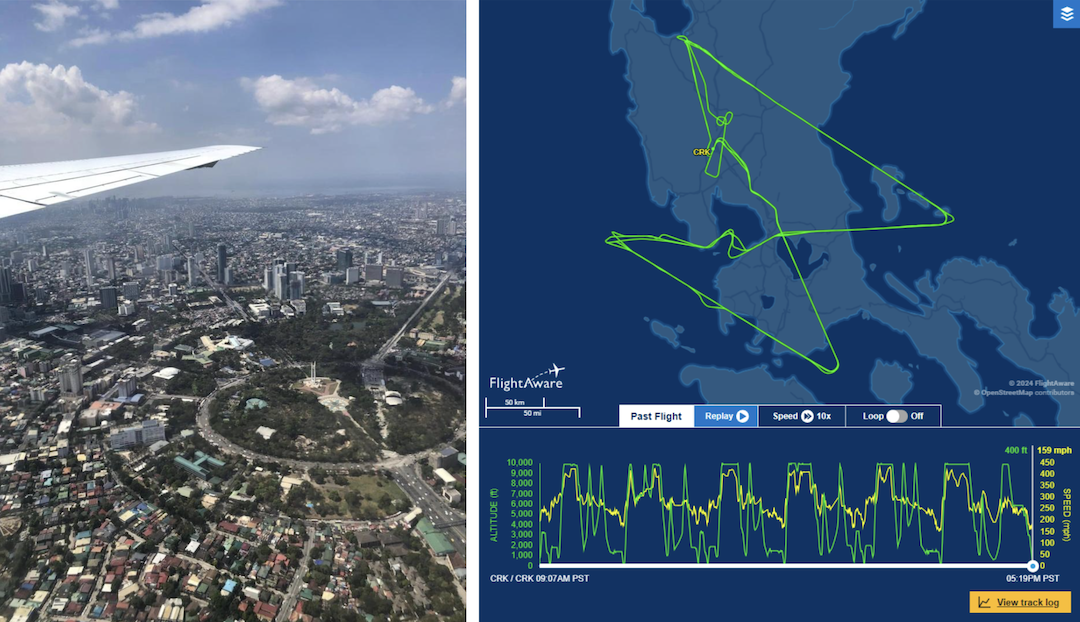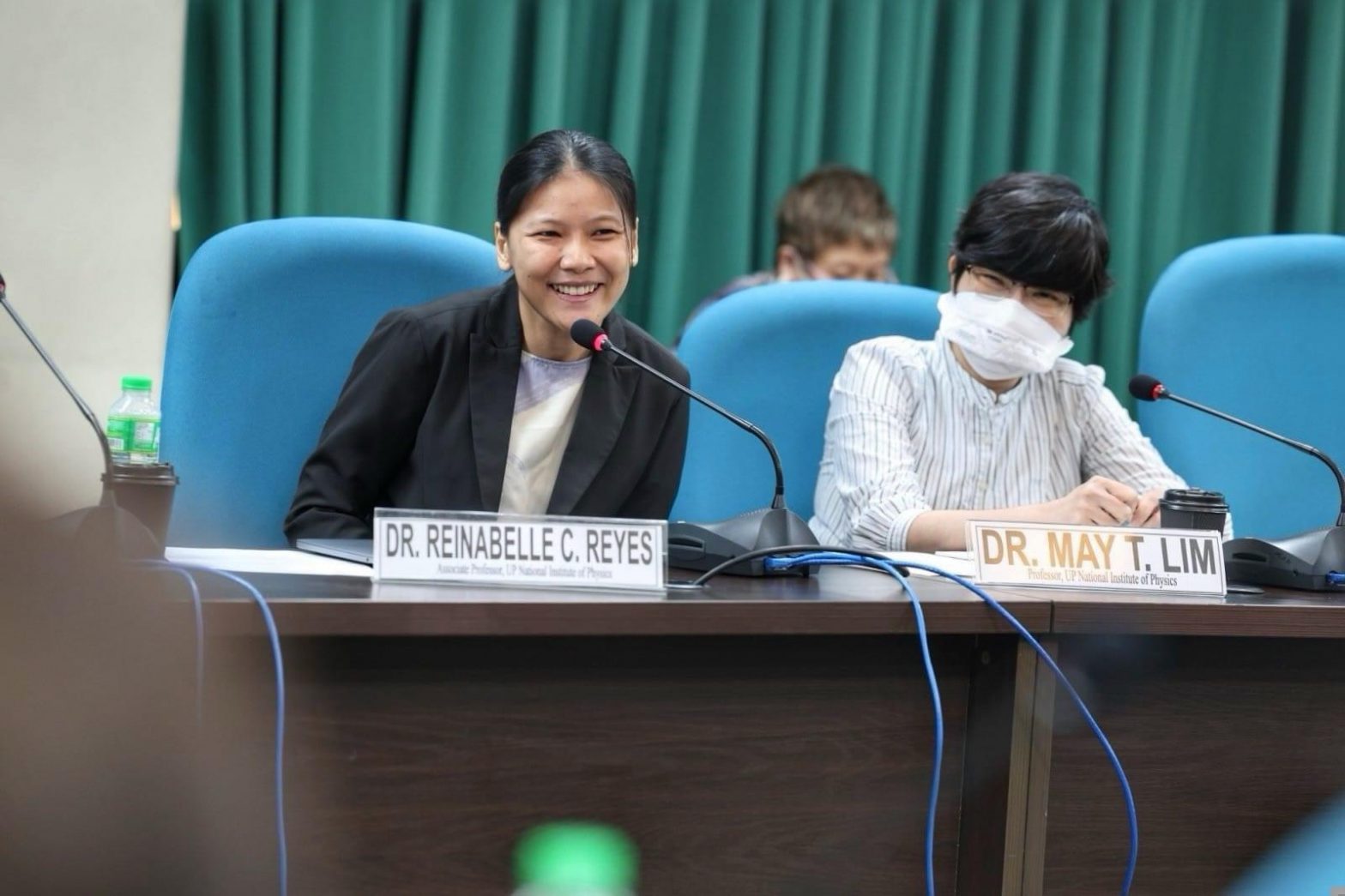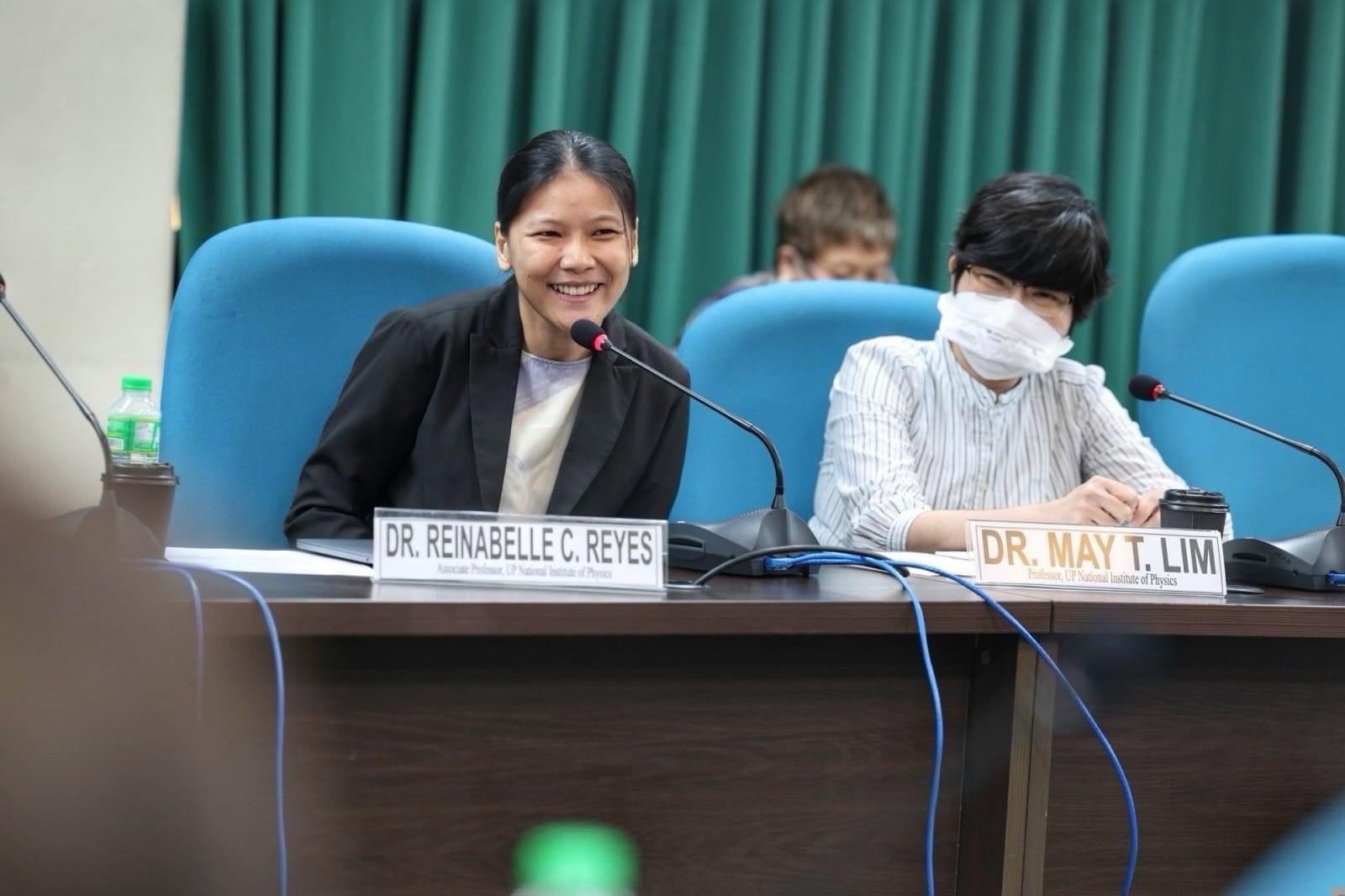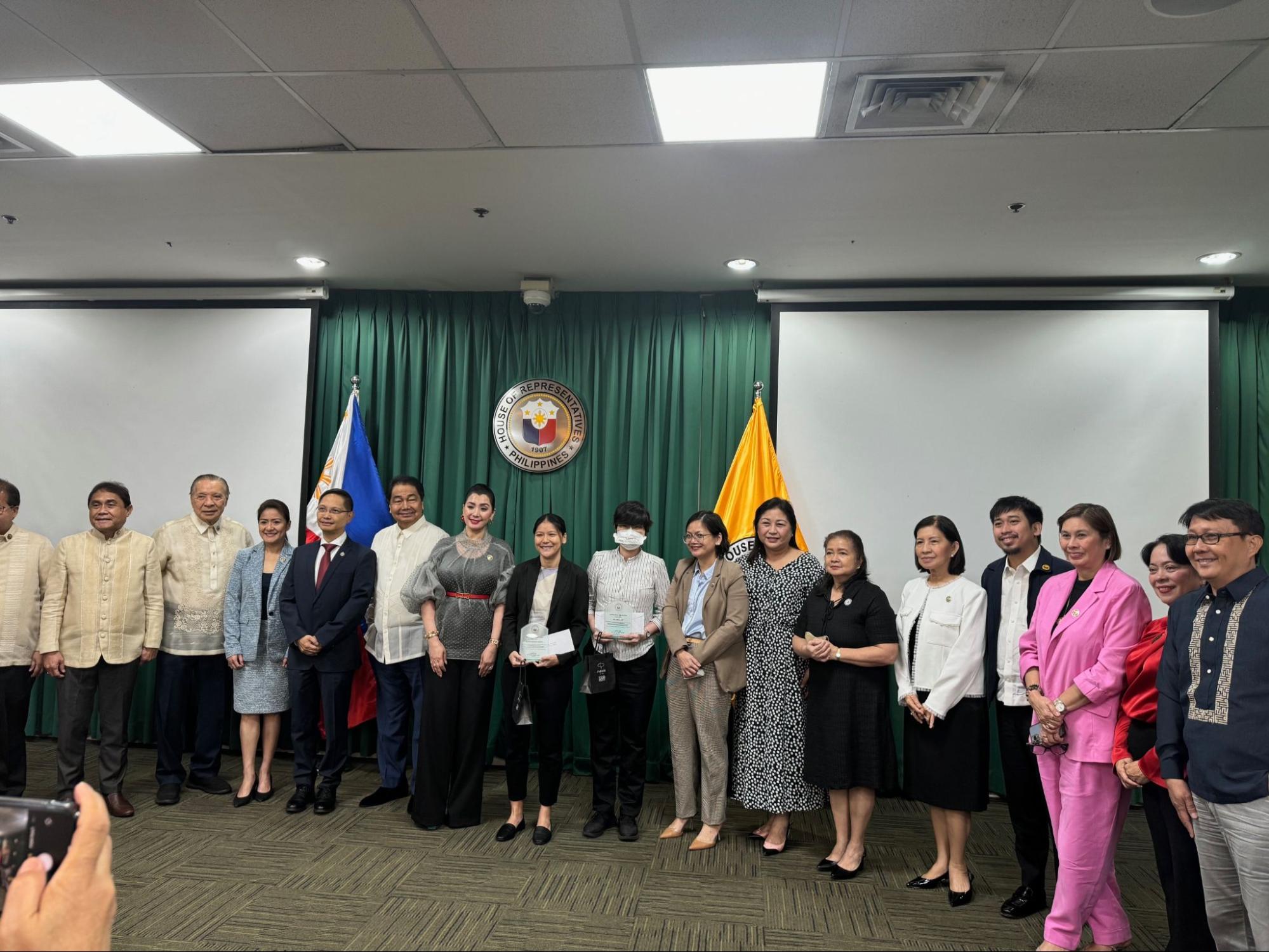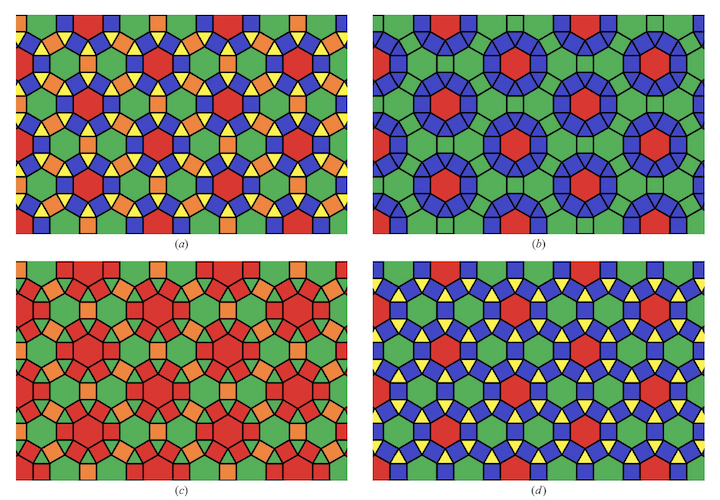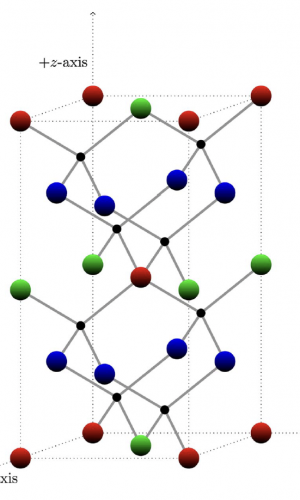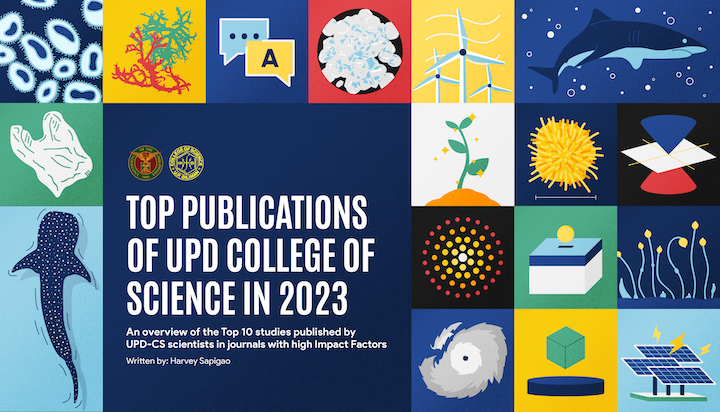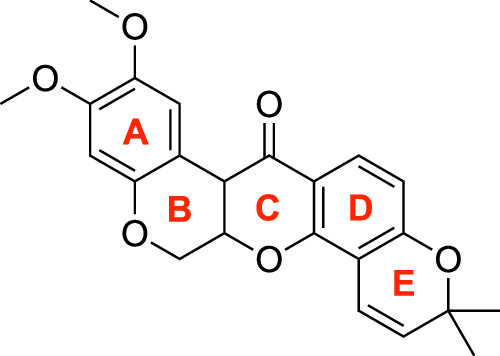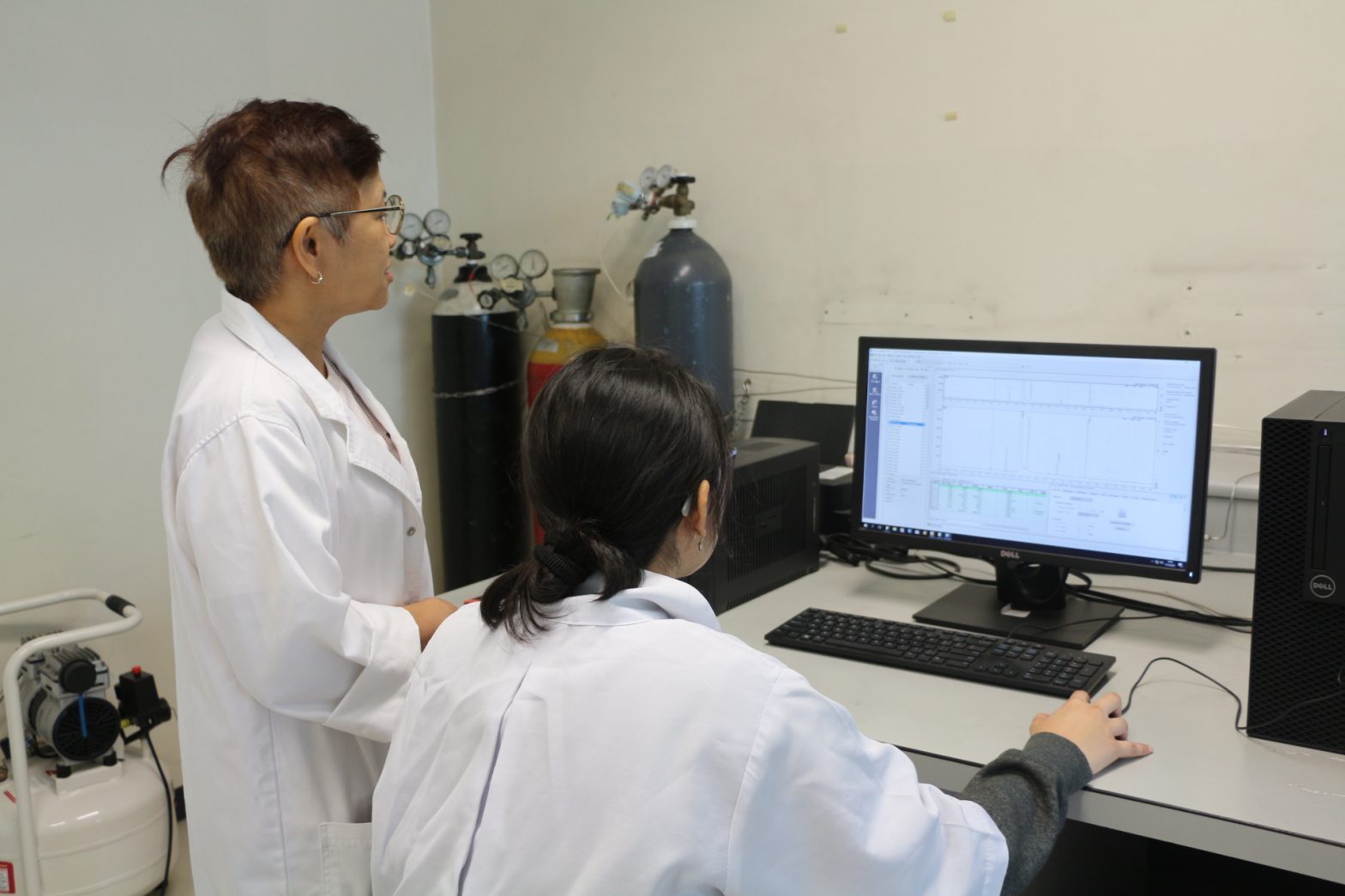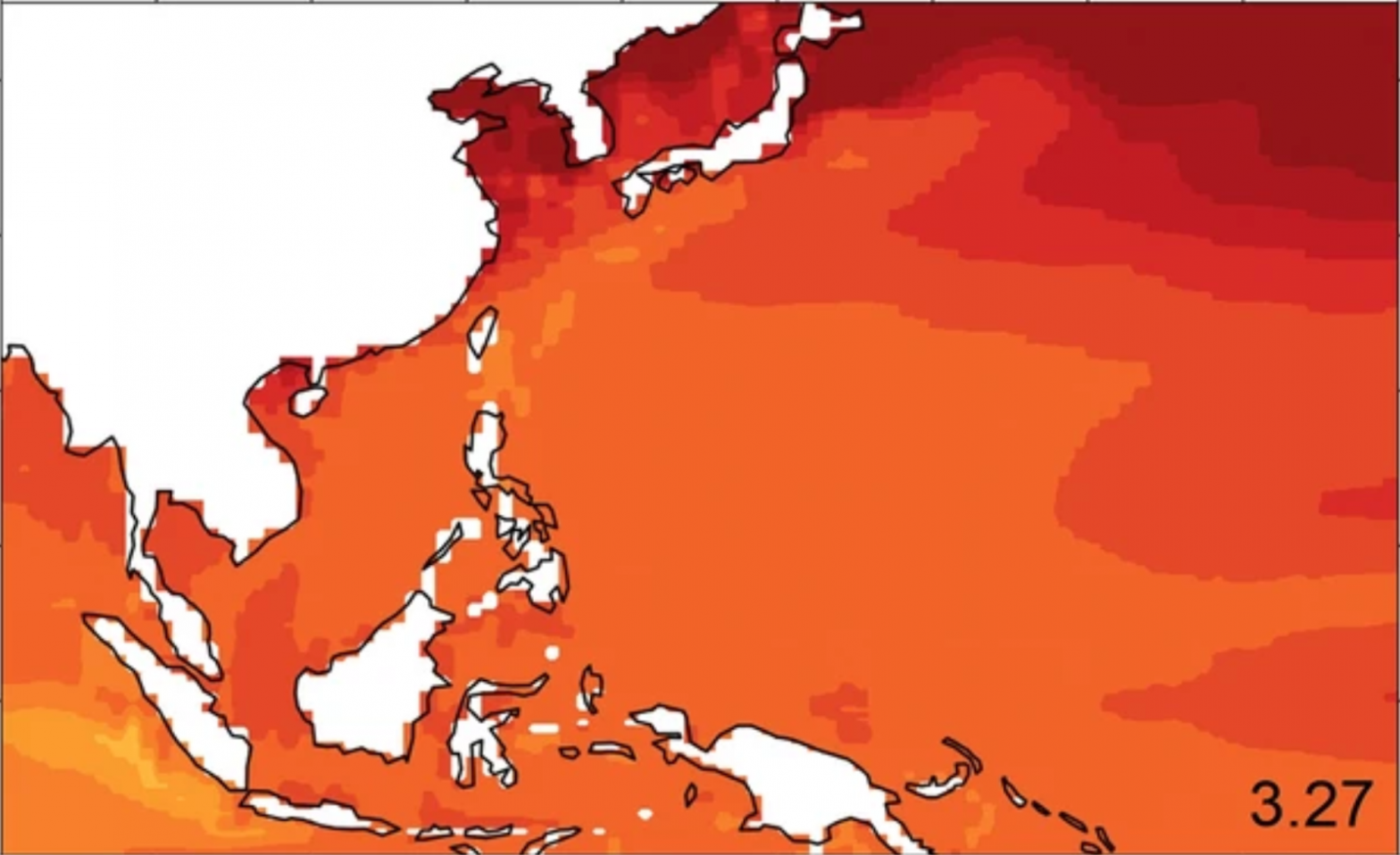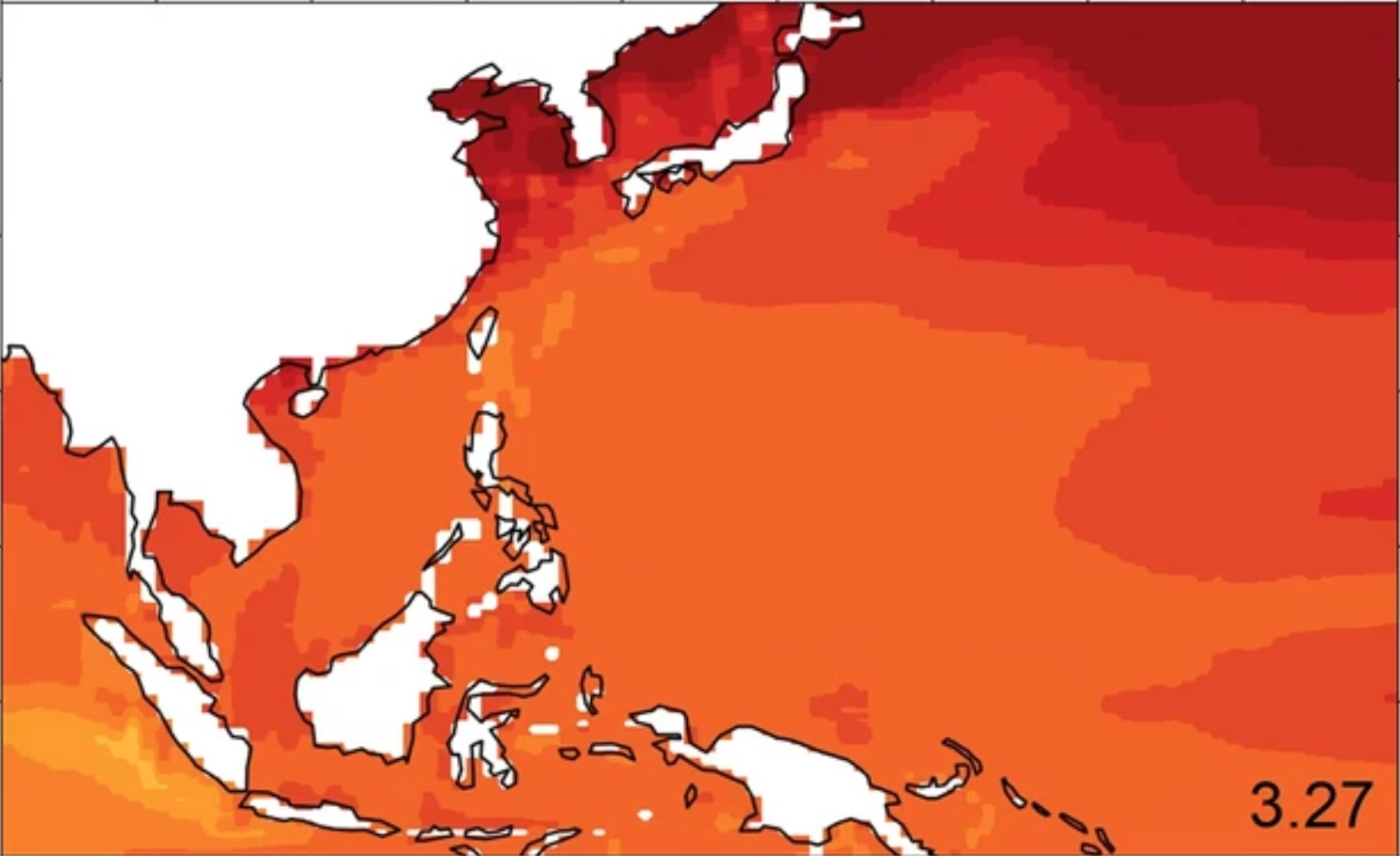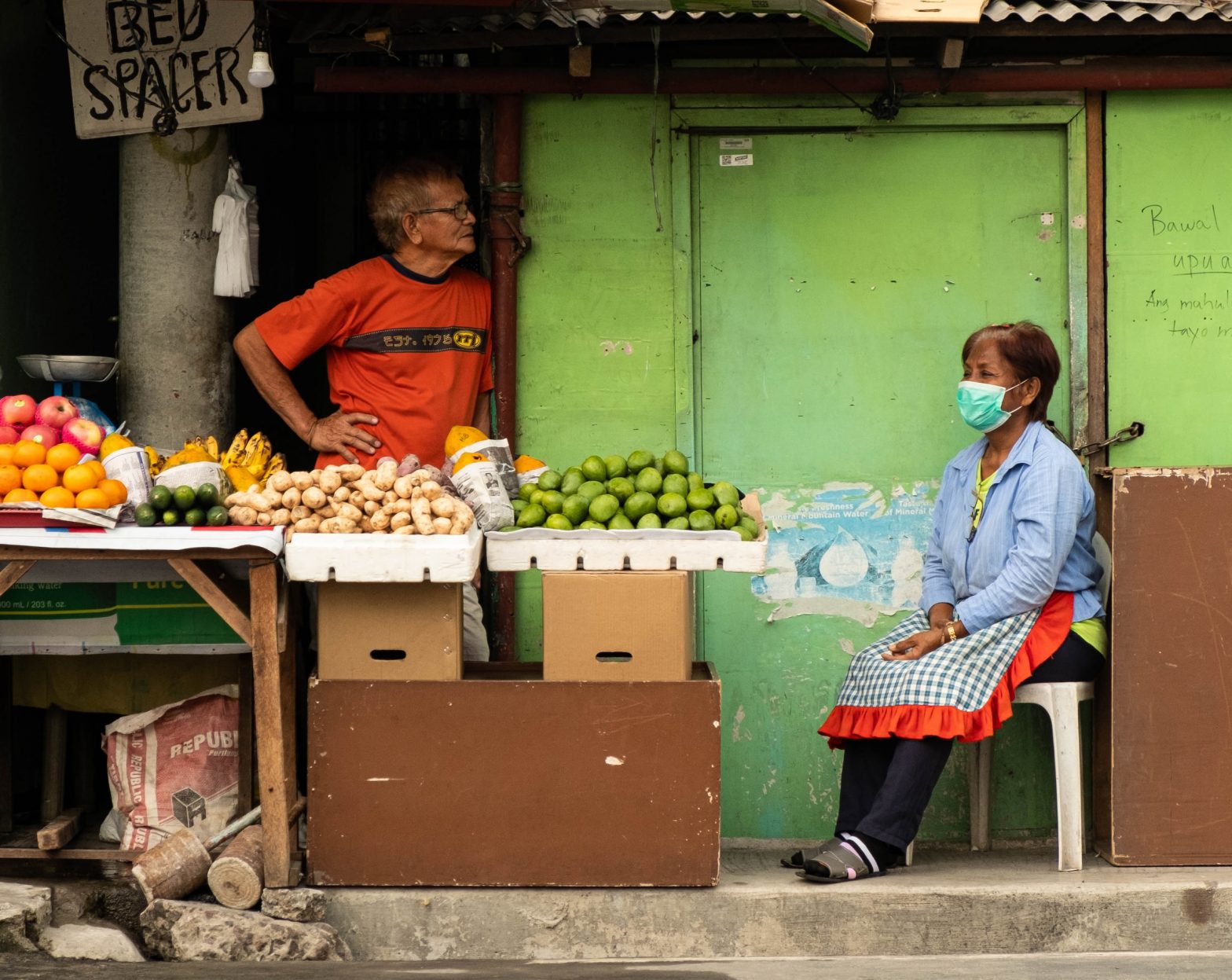Accelerating S&T in PH through Research: High-Impact Studies Led by UP Scientists in 2023
Published: February 21, 2024
By: Eunice Jean Patron
Science and technology (S&T) play a vital role in Philippine development, providing innovative solutions to societal challenges faced by Filipinos. In that regard, the University of the Philippines – Diliman College of Science (UPD-CS) has been at the forefront of advancing S&T in the Philippines for decades, producing basic and applied scientific research of high standards and national relevance. Year after year, research spearheaded by UPD-CS scientists is published in various journals with high impact factors. The impact factor is a variable measuring a journal’s importance based on the average number of citations of its articles.
UPD-CS scientists continued the College’s long streak of quality research in 2023, with several studies they led becoming internationally recognized and included in some of the world’s most notable, high-impact journals. From examining Philippine tropical cyclones to the risk factors of breast cancer, here are some of UPD-CS’ recent scientific breakthroughs contributing to the country’s socio-economic development.
1. Analyzing the effects of pioneer colonizing bacteria on plastic breakdown in oceans
Once released into the environment, plastics become places where bacteria can attach and grow. The bacteria on plastic interact with each other and work differently than those in the surrounding environment, which can affect how plastics break down. However, little is known about specific types of bacteria that are the first to attach and interact with plastics.
Justine Marey Bitalac, Norchel Corcia Gomez, and Dr. Deo Florence Onda of the Marine Science Institute (MSI) studied bacteria from Manila Bay that attach to plastics. Their group identified ten types of bacteria, and the scientists tested their ability to grow on plastic over 60 days. The plastic showed signs of physical deterioration, and chemical analysis revealed that different species of bacteria potentially create varying changes in the plastic’s structure.
Bitalac and Dr. Onda’s research was published in the Journal of Hazardous Materials, a publication featuring articles in the areas of Environmental Science and Engineering. The Journal of Hazardous Materials has an impact factor of 13.6.
2. Detecting harmful dye pollutants using gold nanomaterials
Because of the abundant hot spots in their structure, branch-shaped gold nanomaterials are getting recognized as suitable enhancers for surface-enhanced Raman scattering (SERS), a technique typically used to detect toxic dye pollutants. However, making these nanomaterials usually involves time-consuming experiments that use hazardous and expensive chemicals.
Rufus Mart Ceasar Ramos of the Natural Sciences Research Institute (NSRI) and Dr. Michelle Regulacio of the Institute of Chemistry (IC) created gold nanomaterials using eco-friendly and low-cost organic acids in plants, such as ascorbic acid, oxalic acid, and tartaric acid. Their approach is also convenient, direct, inexpensive, and rapid, taking less than an hour to complete. The resulting branched gold nanomaterials, called nanocorals, also have numerous hot spots similar to the gold nanomaterials.
Ramos and Dr. Regulacio’s research was published in ACS Applied Nano Materials, a publication featuring research covering all aspects of engineering, chemistry, physics, and biology relevant to applications of nanomaterials. ACS Applied Nano Materials has an impact factor of 5.9.
3. Discovering the link between stress, altered light-dark cycles, and breast cancer
Disruption of the body’s 24-hour pattern of biological activity, known as the circadian cycle, is linked to an increased risk of breast cancer. Shift work and constant jet lag, in particular, have been associated with this risk.
In their study, Weand Ybañez and Dr. Pia Bagamasbad of the National Institute of Molecular Biology and Biotechnology (NIMBB) found out that a gene that suppresses tumor growth called the Krüppel-like factor 9 (KLF9) is downregulated in breast tumors compared to normal breast tissue. This gene’s activity is influenced by stress hormones and oscillates with the 12-hour light-dark cycle.
Ybañez and Dr. Bagamasbad’s study was published in Cancer Cell International, a publication featuring studies on cancer cell biology originating from work using laboratory experiments. Cancer Cell International has an impact factor of 5.8.
4. Investigating quantum spin Hall and Rashba effects in flat ilmenite oxides
Inspired by the discovery of an excellent conductor of electricity called graphene, scientists became interested in other two-dimensional (2D) materials that can be used for technological applications. One of these 2D materials is ilmenite oxides.
A group of physicists, including Dr. Genevieve Macam of the National Institute of Physics (NIP), studied the properties of 2D ilmenite oxides with different metal combinations in their original and Janus forms, which are nanoparticles with two distinct surfaces. Their research showed that the different combinations with 2D ilmenite oxides could have applications in spin transport electronics, a branch of electronics that relies on the intrinsic spin of electrons for information storage and processing.
Dr. Macam’s research was published in the Chinese Journal of Physics, a publication featuring research in various branches of physics. The Chinese Journal of Physics has an impact factor of 5.
5. Exploring the potential of Cu2O semiconductors paired with plasmonic metals
Metal–semiconductor nanocomposites, especially semiconductors combined with plasmonic metals like gold (Au) and silver (Ag), can be used for various applications across different fields. These combinations have unique optical properties that arise from their interactions with light and the movement of charge carriers within their structure.
Enrico Daniel Legaspi from the Materials Science and Engineering Program (MSEP) and Dr. Michelle Regulacio of the Institute of Chemistry (IC) examined the pairing of the copper(I) oxide (Cu2O) with Au and Ag. In the review, the scientists detailed the methods and adjustments used to pair the components. The review also explored how these combinations affect the optical and electronic properties of the nanocomposites in the context of photocatalysis, a process where light energy is used to drive a chemical reaction.
Legaspi and Dr. Regulacio’s review was published in Nanoscale Advances, a publication featuring research on nanoscience and nanotechnology. Nanoscale Advances has an impact factor of 4.7.
6. Assessing the response of severe Philippine tropical cyclones to a warmer climate
The Philippines frequently experiences tropical cyclones (TCs), often leading to casualties and significant damage to property due to strong winds, flooding, and rainfall. Understanding how climate change impacts TCs is important, given their socioeconomic consequences.
A group of meteorologists, led by Dr. Rafaela Jane Delfino and Dr. Gerry Bagtasa of the Institute of Environmental Science and Meteorology (IESM), observed how three severe TCs (Haiyan from 2013, Bopha from 2012, and Mangkhut from 2018) might change under future warmer climate conditions through the pseudo global warming (PGW) technique. The simulations show that the three TCs could become more intense with increases in maximum wind speeds. The potential impact of the TCs is also expected to be higher in the future.
Dr. Delfino and Dr. Bagtasa’s research was published in Climate Dynamics, a publication featuring high-quality research on all aspects of the dynamics of the global climate system. Climate Dynamics has an impact factor of 4.6.
Press release: https://science.upd.edu.ph/more-intense-typhoons-to-come-this-century-up-study-warns/
7. Developing a framework for deriving analytic steady states of biochemical reaction networks
Understanding the long-term behaviors of biochemical systems involves looking at their stable states, but deriving these states directly for complex networks can often be challenging. Recent research focuses on network-based approaches, particularly transforming intricate networks of chemical reactions within biological systems into another weaker form. This method, however, can be challenging for larger and more complex networks.
A group of scientists, led by Dr. Bryan Hernandez of the Institute of Mathematics (IM), addressed this difficulty by breaking down complex networks into smaller, independent subnetworks before transforming them. This method provided an effective approach to analyzing and comprehending complex biochemical systems.
Dr. Hernandez’ study was published in PLOS Computational Biology, a publication featuring research focused on understanding living systems at all scales through the application of computational methods. PLOS Computational Biology has an impact factor of 4.3.
8. Examining bottom simulating reflectors in the Manila Trench forearc and its implications on the presence of gas hydrates in the region
Occurrences of gas hydrates in active plate margins have been reported in various locations and have been studied as both a potential alternative energy resource and a threat to methane release. The Manila Trench forearc, close to active margins with likely methane-rich sediments, can be a model to understand gas hydrate formation and the geological preconditions influenced by tectonics and sedimentation processes.
A team of scientists, including Elisha Jane Maglalang, Dr. Leo Armada, Madeline Santos, Karla May Sayen, and Dr. Carla Dimalanta of the National Institute of Geological Sciences (NIGS), conducted the first study that investigates the Manila Trench region for indicators of gas hydrates, laying the foundation for future gas hydrate research in the area and exploring its potential as an energy resource and the geological hazards linked to gas hydrate dissociation in an active margin setting, such as submarine slope failures and methane release to the atmosphere. The scientists also reinterpreted existing seismic data from the Manila Trench to describe bottom simulating reflectors (BSRs), which are considered important seismic markers of the probable presence of gas hydrates.
Their study was published in Marine and Petroleum Geology, a publication featuring research covering marine and petroleum geology. Marine and Petroleum Geology has an impact factor of 4.2.
9. Looking into the hidden diversity and genetic variations in the coral Acropora tenuis and its endosymbionts across the Great Barrier Reef
Genetic research is revealing extensive hidden diversity in reef-building corals, suggesting that the diversity in these key reef organisms is much greater than previously thought. Endosymbiotic algae living inside coral hosts may also help corals adapt to environmental stress, adding another layer of genetic variation that isn’t limited by differences between coral species.
A team of biologists, led by Dr. Ambrocio Melvin Matias of the Institute of Biology (IB), examined the genetic variations in a common reef-building coral, Acropora tenuis, and its associated endosymbiotic algae across the entire Great Barrier Reef (GBR). Their research suggests that the environment plays a vital role in shaping the algae communities living with the corals, which could help them adapt to changes in their environment.
Dr. Matias’ study was published in Evolutionary Applications, a publication featuring research on taxonomic groups – from microbes to plants and animals. Evolutionary Applications has an impact factor of 4.1.
10. Delving into the possible leafy vegetables' distinctive biomolecular properties included in prehistoric southern Vietnamese cuisine
Vietnamese cuisine is considered one of the healthiest in the world, with the inclusion of leafy green vegetables as one of the factors. The vegetables grow in both terrestrial and aquatic habitats, and they can be further chemically distinguished based on the lengths of their waxy organic compounds. Finding these compounds in pottery vessels as organic residues suggests that ancient people used pottery to prepare these food sources.
A group of scientists, led by Dr. Michelle Eusebio of the Science and Society Program (SSP), conducted an organic residue analysis on sampled pottery vessels from three archaeological sites in Southern Vietnam. Their analysis revealed that Vietnamese people used a specific combination of terrestrial and aquatic leafy vegetables in their cooking. They found a series of mid-to-long-chain fatty acids, alkanes, alcohols, and a wax ester (tetracosanyl palmitate, C40) in the pottery, which hasn’t yet been reported in archaeological pottery samples. This discovery provides new evidence on how ancient Vietnamese people used pottery to prepare and serve plant-based foods.
Dr. Eusebio’s research was published in the Journal of Archaeological Science: Reports, a publication featuring research applying scientific methods to archaeological problems. The Journal of Archaeological Science: Reports has an impact factor of 1.6.

